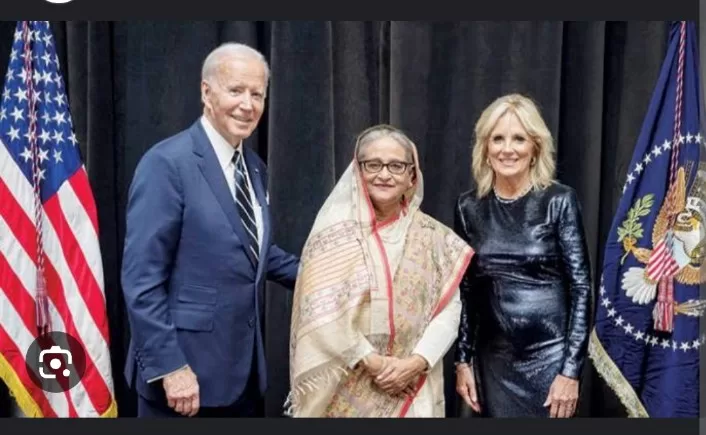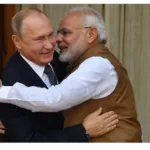In a panorama where diplomatic intricacies dance in the limelight, India’s measured counsel to the United States reverberates with ramifications that resonate beyond the borders of Bangladesh. The crucible of concern centers on the specter of excessive pressure upon the forthcoming general elections in Bangladesh, a posture that could inadvertently stoke the embers of extremism and disrupt the delicate equilibrium of regional stability.
Sources privy to the matter disclose that New Delhi’s reservations, shrouded in the veils of anonymity, found voice in recent interactions with the US. India’s proactive engagement, while advocating for the ideals of free and equitable elections in Bangladesh, cast an ominous cloud over the perils of hyper-pressurization, potentially bolstering the insurgency-laden factions and upheaving the tranquil veneer that the government of Prime Minister Sheikh Hasina has painstakingly preserved.
The intricate tapestry of geopolitics is woven with the threads of global interplay, and the current scenario poses an intricate puzzle for India. It elucidates that the very pressure intended to carve out a path for transparent democratic exercises might inadvertently steer Bangladesh towards China’s embrace. This inadvertent trajectory shift could reshape the geopolitical dynamics of the region, reshuffling alliances and recalibrating the power equilibrium.
Amid the symphony of strategic deliberations, the undercurrents of historical complexities cast their shadows. Notably, India’s astute articulation mirrors its desire for unmarred electoral proceedings in Bangladesh. However, the perceptive nuances of international politics nudge India to caution against the pitfall of excess pressure. This apprehension hinges upon the belief that the abrupt intensification of external pressure might be tantamount to fanning the flames of extremism, thus unsettling the political equilibrium.
The dynamics at play extend beyond diplomatic declarations. The specter of US sanctions that had descended upon Bangladesh’s Rapid Action Battalion (RAB) as well as Bangladeshi nationals, the latter accused of subverting the electoral process, sets a stage where the contours of external influence intersect with domestic affairs.
China’s calculated overtures assume significance in the mosaic of regional politics. Chinese President Xi Jinping’s recent articulation, underscored by support for Bangladesh’s aversion to external interference, resonates with strategic undertones. The burgeoning Bangladesh-China camaraderie, anchored in “mutual respect and non-interference in internal affairs,” unfurls a geopolitical canvas with profound implications.
Prime Minister Hasina, a linchpin in India’s regional diplomatic framework, charts an uncharted course. Her tenure, marked by counterinsurgency crackdowns and enhanced regional connectivity, forges her status as an invaluable ally to India. Notably, India’s strategic interests find resonance in her tenure’s endeavors, from thwarting anti-India insurgent entities to bolstering trade and connectivity with the subcontinent’s northeastern realms.
The interplay of international pressure, bolstered opposition, and the reinvigoration of the Jamaat-e-Islami, known for its anti-India stance, conjures complexities. Bangladesh’s electoral conundrum, an orchestra of influences, adjoins the domino effect that can resonate through regional stability, reshaping alliances, and triggering ripples across India’s eastern borders.
As the Indian delegation from Hasina’s Awami League converged in New Delhi, the underlying resonance of regional stability echoed in its dialogues with BJP officials. The tableau of India’s proactive engagement finds expression in these deliberations, underscoring the symbiotic convergence of diplomatic overtures and the intricacies of geopolitical equilibrium.
In a grand theater where interests entwine and tensions coil, India’s calibrated counsel reverberates as a cautionary prelude to the geopolitical symphony that unfolds on Bangladesh’s electoral horizon.







